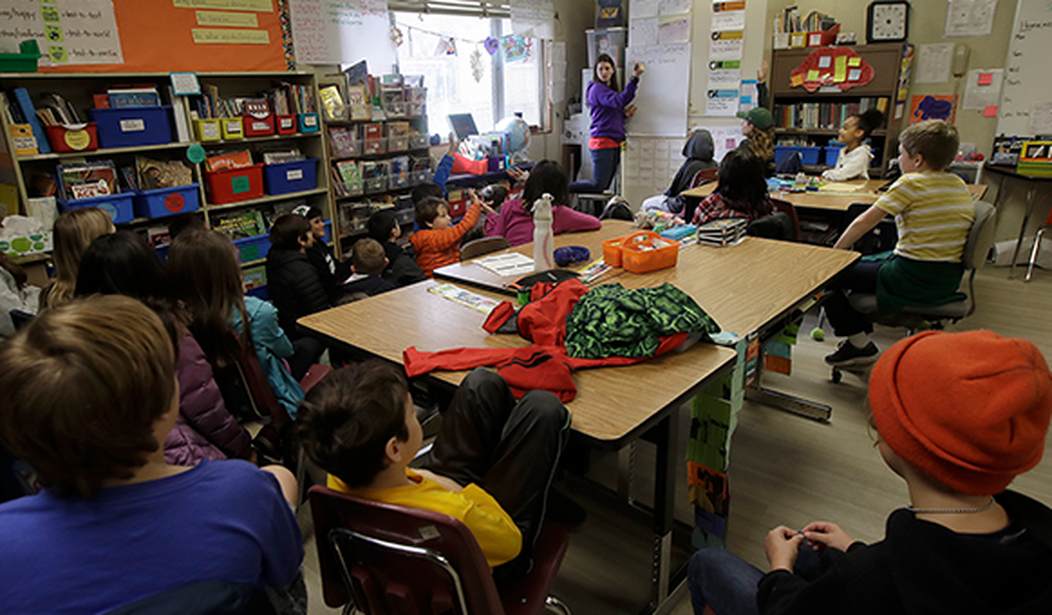Despite the “furious response” from teachers’ unions and some Democratic legislators, the Trump administration is pushing hard to get kids back into physical classrooms in the fall, with the president even suggesting funding (or a lack thereof) could be used as an incentive should states keep schools closed.
And while critics of the administration’s plan are crafting a countervailing narrative that says the push is mostly about optics related to the economy and the election, others are pointing out the very real choice before parents and educators should schools continue to remain closed: the mental and physical health of the nation’s children.
Jenny Beth Martin, Tea Party Patriots Action Honorary Chairman, attended a meeting this week at the White House and heard the Centers for Disease Control (CDC) was considering revising their rather stringent guidelines to ensure schools could reopen in August. By Thursday, the CDC had changed course. Martin released a statement indicating her dismay at the change of heart.
“[T]his morning, appearing on a morning television show, [CDC Chief Robert] Redfield denied the CDC would issue revised guidelines,” Martin’s statement read. “‘Our guidelines are our guidelines,’ he said. That’s not good enough. The current CDC guidelines are ridiculous. They appear to have been written by someone totally unfamiliar with children and their behavior. They are totally unworkable in the real world. They certainly are not written with the ‘goal of having students physically present in school,’ as the American Academy of Pediatrics (AAP) has advised. And until they are significantly revised, administrators who do not want to reopen schools in the fall will use them as their excuse.”
Recommended
Martin told Townhall among her primary concerns is the health and welfare of the children themselves, and that the narrative being developed is, sadly, just an attempt to make something that should not be partisan into a political litmus test.
“There are unintended consequences that come from lockdowns and closing schools,” Martin said. “The AAP – who are in favor of opening schools – has noted the lockdown has led to social isolation which in turn has led to increased depression and suicide ideation. We also know for certain cases of domestic violence have gone up.”
Interestingly, Martin notes the instances of child abuse have apparently decreased since lockdown began but she says there’s a quarantine-related reason for that as well: the people who would normally be reporting concerns about abuse are often adults outside the home such as educators and counselors.
“Those numbers may be down because those adults aren’t seeing those kids,” she says.
There are other experts in childhood health who agree with Martin about the damage the lockdown has done to the mental and physical stability of children. In fact, following the contentious exchange in May between Kentucky Republican Senator Rand Paul and Dr. Anthony Fauci, the director of the National Institute of Allergy and Infectious Diseases, a leading pediatrician, Dr. Dimitri Christakis, declared Paul correct: the kids must be allowed to return to school.
"The decision to close schools initially, and now to potentially keep them closed, isn't, I think, taking the full measure of the impact this is going to have on children," he told NPR. "Not just the short term, but the long term."The problem, Christakis says, isn't just learning loss, which is expected to fall particularly hard on low-income children with unequal access to distance learning. Recent research from a large testing association on the "COVID-19 slide" suggests children may return in the fall having made almost a third less progress in reading, and half as much progress in math, compared with what they would have in a typical school year.Mental health and social-emotional development, Christakis argues, have been less discussed: "The social-emotional needs of children to connect with other children in real time and space, whether it's for physical activity, unstructured play or structured play, this is immensely important for young children in particular." A new study in JAMA Pediatrics, he says, documents elevated depression and anxiety among children under lockdown in China.
Despite the research and expert advice, teachers’ unions – particularly the National Education Association (NEA) -- have been singularly vicious in their insistence the administration’s desire to see schools reopen is about politics and little else.
You know that somebody is looking for a better jobs report,” said National Education Association President Lily Eskelsen García, who called Trump an “idiot” in a Wednesday call with reporters.
“He's hoping some indicator goes up that people are going back to work,” García added, “and he is saying, ‘Sacrifice your children, sacrifice their teachers, sacrifice their families that they could infect, because I need something to sell in November.’”
Martin disagrees.
“The lockdown is harming children, period,” she says. “We’ve made a contract with our children that we’re going to make sure they’re educated because education equalizes the playing field. Broadly speaking, the majority of children recover quickly from the virus, and there’s little evidence that children transmit it to adults. What the administration is doing is not political. They’re advocating for the children.”
Sarah Lee is a freelance writer and policy wonk living and working in Washington, DC.

























Join the conversation as a VIP Member